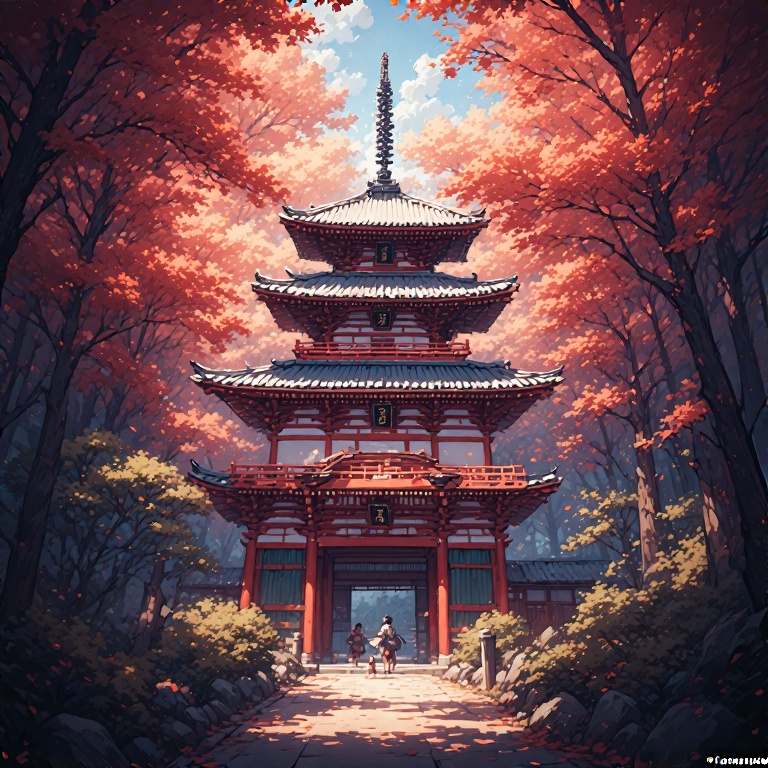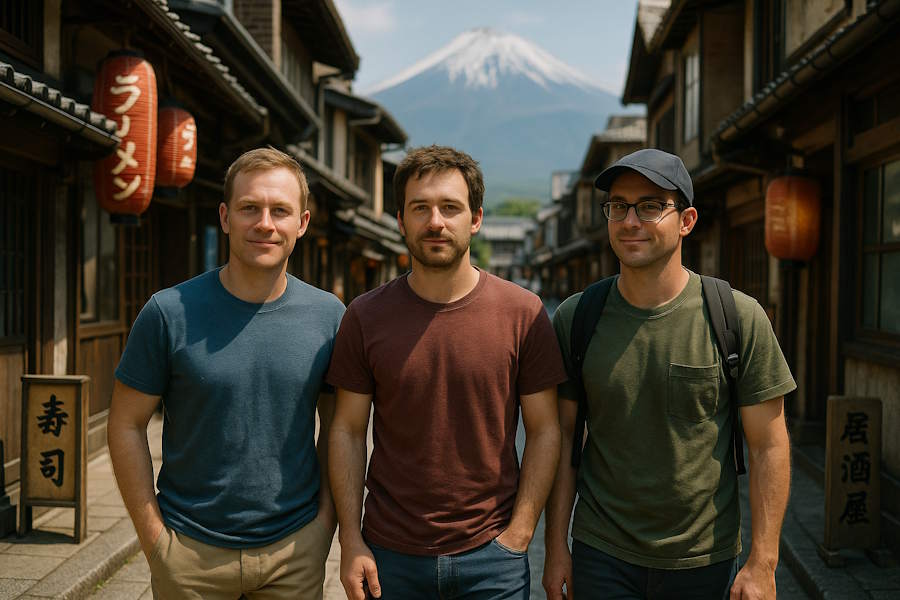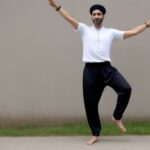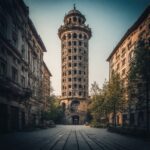The men declared their exodus with the fanfare of secrecy. “Just us,” they said, “only the brothers, the boys, the tribe.” No women, no distractions. Just freedom. Their eyes gleamed with something feral and unfinished. I laughed. Once upon a time — lifetimes ago, or just one blurry summer evening — I’d had a brief affair with one of them. Not enough to bind, just enough to remember.
And I stayed behind. I didn’t protest. Not a word. But the universe, in its quiet mischief, has a way of blurring the lines. They sent updates. Daily, then hourly. Photos of glowing vending machines, skyscraper silhouettes, ramen steam rising like spells. They were free, all right — gloriously, boyishly free.
But something odd happened. The more I saw of their journey, the more Japan invaded my sleep.
At night, my dreams wrapped themselves in paper lanterns. I floated through Kyoto’s moss gardens, where every stone seemed to remember the footfalls of ghosts. I stepped into Nara Park, and the deer bowed to me — gently, absurdly polite, as if they recognized a strange royalty in my bones. In Tokyo, the skyline unfolded like origami, buildings shifting with the rhythm of thought.
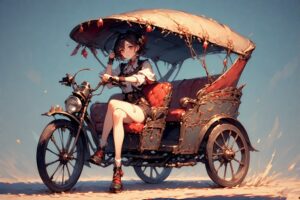 Then came the rickshaw.
Then came the rickshaw.
It appeared with no sound, only presence — lacquered black with red cushions that smelled faintly of plum blossoms. The man who pulled it was small, wiry, ageless. He bowed with theatrical flourish.
“My lady,” he said in a voice like wind over silk, “your chariot awaits.”
I giggled. “Where are we going?”
He grinned. “Wherever dreams leave doors open.”
We rolled through streets of memory and invention. Past lantern-lit izakayas in Shinjuku where businessmen sang karaoke to forgotten lovers. Through the quiet alleys of Gion, where geishas flickered like painted birds, their footsteps barely touching the earth. In Hakone, steam rose from the hot springs like ancient thoughts, and I dipped my toes into warmth older than time.
And then — as dreams do — the scenery bent.
I saw the guys.
They were sitting on a low stone wall outside a 7-Eleven in Osaka, munching rice balls and looking vaguely lost. Their laughter had softened into silence. One checked his phone. Another stared at the pavement like it might start speaking.
I waved as I passed, a glittering figure in the rickshaw.
“You look like a princess,” one of them said.
“I am,” I replied, and the rickshaw man chuckled.
They looked up, blinking in the afternoon haze.
“Are you… actually having fun?”
I leaned back against the red cushions. “Absolutely. You boys wanted freedom — I found magic.”
They didn’t answer. But their faces told a story I understood.
Freedom, it turns out, is not the absence of others. It’s the presence of wonder.
We rolled on — past Mount Fuji, its white crown glinting like a secret; past fields of irises swaying in choreography with the breeze. In every corner of the dream, I found something more — a koi pond that mirrored the stars, a street performer balancing umbrellas on his chin, a quiet temple where my breath joined the incense in prayer.
And the rickshaw man? He treated me as though I ruled every street, every cloud, every whispering pine. “Princess of the Dream,” he called me.
I didn’t correct him. The day after this dream I was feeling the Japanese spirit!
